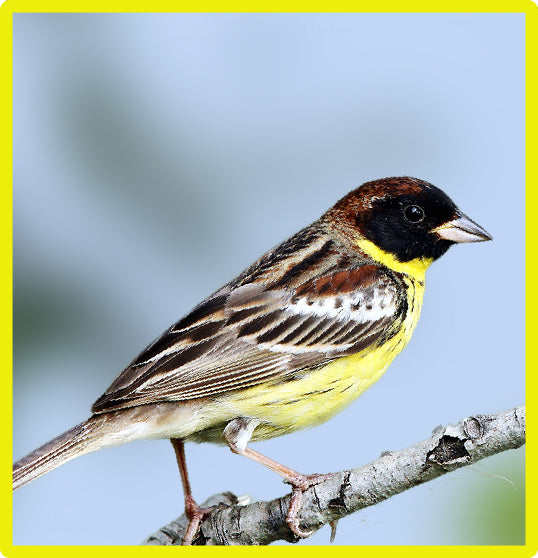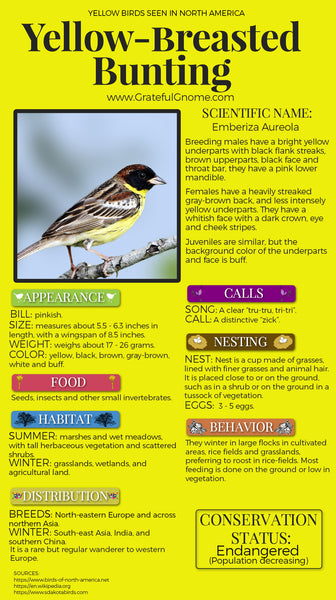

SCIENTIFIC NAME: Emberiza Aureola

Breeding males have bright yellow underparts with black flank streaks, brown upperparts, black face and throat bar, they have a pink lower mandible.
Females have a heavily streaked gray-brown back and less intensely yellow underparts. They have a whitish face with a dark crown, eye and cheek stripes.
Juveniles are similar, but the background color of the underparts and face is buff.

BILL: pinkish.
SIZE: measures about 5.5 - 6.3 inches in length, with a wingspan of 8.5 inches.
WEIGHT: weighs about 17 - 26 grams.
COLOR: yellow, black, brown, gray-brown, white and buff.

Seeds, insects and other small invertebrates.

SUMMER: Marshes and wet meadows, with tall herbaceous vegetation and scattered shrubs.
WINTER: Grasslands, wetlands, and agricultural land.

BREEDS: North-eastern Europe and across northern Asia.
WINTER: South-east Asia, India, and southern China.
It is a rare but regular wanderer to western Europe.

SONG: A clear “tru-tru, tri-tri”.
CALL: A distinctive “zick”.

NEST: Nest is a cup made of grasses, lined with finer grasses and animal hair.
It is placed close to or on the ground, such as in a shrub or on the ground in a tussock of vegetation.
EGGS: 3 - 5 eggs.

They winter in large flocks in cultivated areas, rice fields and grasslands, preferring to roost in rice-fields.
Most feeding is done on the ground or low in vegetation.


SOURCES: https://www.birds-of-north-america.net